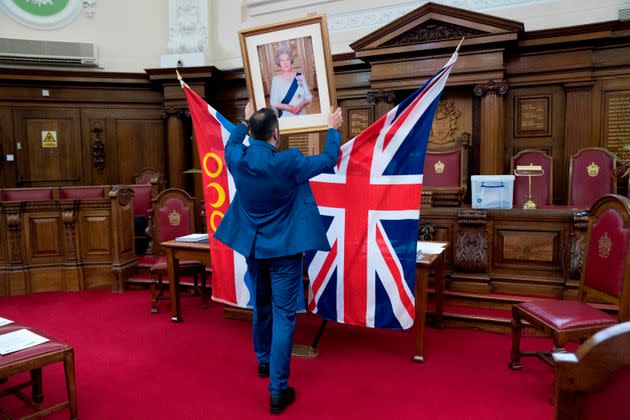Britain's Citizenship Test Is Racist

This week, 181 historians signed an open letter demanding that the Home Office correct historical inaccuracies in the handbook which accompanies the UK’s citizenship test.
While asking would-be citizens to learn from a biased version of history is worrying, it’s high-time we got rid of this racist test altogether.
Since 2005, adults applying for citizenship in the UK have been required to take the “Life in the United Kingdom” test.
It’s a 45-minute exam which requires the applicant to regurgitate a range of pub-quiz style trivia in order to hit the 75% pass-mark.
The required reading is a dedicated handbook called “Life in the United Kingdom: A Guide For New Residents.”
The share of the book dedicated to the colonialism on which Britain’s wealth is founded is conspicuously slim, and has this week been shown by historians to be characterised by falsehoods and bias designed to whitewash Britain’s past.
Asking migrants to demonstrate knowledge of an arbitrary body of facts on which the rest of us are never tested points to a two-tier system, much like the “citizens” and “subjects” of the British Empire.
The role of enslaved people in battling and abolishing slavery is erased, as are the resistance movements that precipitated the end of Britain’s colonial rule. (In addition, there isn’t a single Black person depicted in the book, and there are only two images of people of colour across its 180 pages; the Home Office evidently sees whiteness as an important part of life in the UK.) Passing the test does not guarantee citizenship. It’s just one of many hoops that must be jumped through before an application is even considered, a process that costs £1,330 per person.
While the removal of misleading content from the UK’s citizenship curriculum looks like a step towards reckoning with the realities of our colonial history, it makes little sense to slightly improve the representation of colonialism within a construct that is itself...


